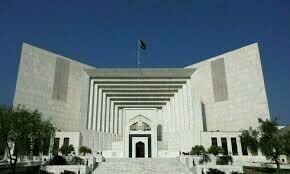DURING the lawyers movement, Pakistan’s judges came together to preserve their integrity and that of the judicial set-up they were serving. It was a struggle for an independent judiciary based on the rule of law, which is built on the conception that everyone, including those ruling the country directly or indirectly, are subject to the same set of rules.
The idea is that everyone is equal, and the consequences of every illegality is the same for all, irrespective of the status or privilege of the perpetrator. The struggle, as it was framed then, was that the rules-based system made no exceptions typically, and an independent judiciary was its only guarantor.
Upon the movement’s success, however, the judiciary began to act, react, and at times, overreact in its newfound role as the guarantor of the rule of law. Some had brushed off this approach as overzealousness or exuberance; others had referred to the judiciary as an institution drunk with power; whilst others yet had simply highlighted it as evidence of sheer incompetence within the institution itself.
Eventually, though, this led to scathing criticism of the judiciary itself. It ultimately culminated in the enactment of the controversial 26th Amendment. As may be recalled, this had been touted as a much-needed tweak that would restore the balance of power and reinforce a system of checks and balances amongst the institutions.
However, in enacting the same, parliament and the executive conducted, in effect, a liver transplant to remove a brain tumour. This is so as the actual imbalance in institutional harmony appears to emanate not from the alleged lopsided allocation of powers by the Constitution, but rather the aggrandisement and accumulation of power by entities that have no such role as per the Constitution.
Hence, in a nutshell, the cause of Pakistan’s imbalance in the sphere of politics and governance is in large part due to the conflict between what the Constitution demands of us and what the ground realities dictate — that is, it all boils down to de jure and de facto power.
And, it must be said, unless and until the problem of the suited and booted elephant in the room is addressed, we are destined to go around in circles in search of a miracle cure that does not exist.
Parliament and the executive have managed to create a greater imbalance than was ever present before.
However, the political class and establishment refuse to acknowledge this fundamental abnormality in our constitutional order, which has turned the trichotomy of powers into a sort of dichotomy of powers. The Constitution only recognises three institutions as pillars of the state — the judiciary, the executive, and parliament — whereas in reality, as is known by all and sundry, the actual fountainhead of power rests in an entity that is not among the three mentioned.
The 26th Amendment, it is argued, simply gave that invisible power, through the executive and parliament, a decisive role in making judicial appointments and selecting benches.
It is important to note that the terms ‘amendments’ and ‘restoring balance’ were consistently thrown around in the discourse that sought to legitimise the passage of the 26th Amendment. However, an amendment by its very nature seeks only to modify certain aspects of the parent document, without altering its basic character.
The 26th Amendment, though, fundamentally changes the very basis on which the Constitution rests — it knocks out an established pillar of the state and attempts to create an arena of unaccountability for the governing elite; in other words, it makes exceptions to the applicability of the law.
Looked at in another way, previously, the judiciary was considered to be the watchman that safeguarded the citizens from the encroachments and overreach of the executive and parliament. Now, this very watchman is being appointed by the same trespassers whose encroachments he is supposed to stop; not just that, the watchman is also being told by the trespassers where he has to stand and what he should not watch.
Secondly, although the term ‘restoring balance’ signifies remedying the distortions in the practices that violate the original intent and spirit of the Constitution, the amendment in and of itself does exactly the opposite.
The Constitution is very clear about the need to restrain executive overreach, establishing a rules-based order that applies to all, as well as the endeavour to cater to the fundamental rights of its citizens as opposed to the citizens being made to cater to oversized and lethargic state machinery.
By subordinating the judicial appointments process to the choices, aspirations, sentiments, and political mandates of the political parties, amongst others, and by allowing parliament and the executive to decide which benches hear what matters, the 26th Amendment has created a state of perpetual imbalance, with parliament and the executive being the two remaining pillars, and a pliant judiciary being made their cheerleader of sorts.
In essence, in claiming to restore balance, parliament and the executive have managed to create a greater imbalance than was ever present before.
As such, the 26th Amendment is not merely a tweak in the Constitution. It is a fundamental change that has, in fact, rendered the constitutional system lopsided and its institutions unaccountable.
It has, in effect, created exceptions to the rule of law, and in doing so, has allowed the ruling elite to rule by law the general masses, whilst simultaneously exempting themselves from its applicability. It is an attempt to blatantly sidestep accountability and surreptitiously revert a system based on the rule of law into one based on a rule by law. It is an inequity that will continue to threaten stability, not reinforce it.
The writer is a lawyer based in Karachi.
X: @basilnabi
Published in Dawn, January 18th, 2025

















































